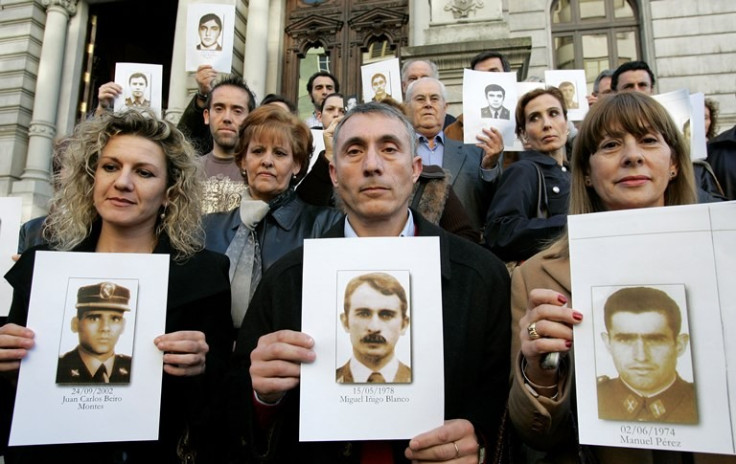Spain Ordered to Free ETA's Top Female Assassin Ines del Rio Prada

Basque militant Ines del Rio Prada, 55, is set to walk free from a Spanish prison after the terms of her prison sentence for terrorist attacks - including involvement in 23 assassinations - was ruled unlawful by the European Court of Human Rights (ECHR).
Under Spanish law no-one can serve more than 30 years for murder, even if - as in the case of Prada - their total sentence is much longer. Prada, who was jailed for 3,838 years in 1989, took the Spanish government to the ECHR when it became apparent that time deducted for good behaviour would be deducted from the total length of her sentence, rather than the 30 year maximum. The Spanish courts changed the law in 2006 and the change became known as the "Parot Doctrine", after Henry Parot, another ETA member who was the first to be affected by the new ruling.
The Strasborg court ordered that Prada must be released and that the Madrid government pay her compensation of 30,000 euros as compensation for spending extra time in jail. However Spanish Justice Minister Alberto Ruiz-Gallardon said the government would not have to pay compensation to Prada as she still owed compensation to her victims. Ruiz-Gallardon criticised the verdict at a press conference in Madrid, saying he regretted the decision.
Angeles Pedraza, head of the Association of Victims of Terrorism (AVT), joined in Spanish condemnation of the ECHR. Also speaking in Madrid she told a press conference:
"First, we are going to ask that we don't comply. And of course there is no reason to open the jail doors because they will have to lodge an appeal one by one. This is not justice. Despite being defeated today, the AVT and the victims will fight to the last for justice in Spain. And justice means the terrorists are in jail and victims can mourn."
Terrorists associated with ETA (an acronym for Euskadi Ta Askatasuna - "Basque Homeland and Freedom") have killed around 800 people since their campaign for a separate Basque state turned violent in 1968. In recent years a series of arrests has weakened the group and in 2011 it declared an open-ended ceasefire but earlier this month a demonstration in support of ETA members imprisoned for terrorism attracted thousands of protestors in Bilbao.
The ECHR ruling could pave the way for other members of ETA to challenge the length of their imprisonment and potentially sue for compensation. There are around 600 members of ETA in Spanish prisons, of whom around 60 have had their early release cancelled under the Parot Doctrine.
© Copyright IBTimes 2025. All rights reserved.






















